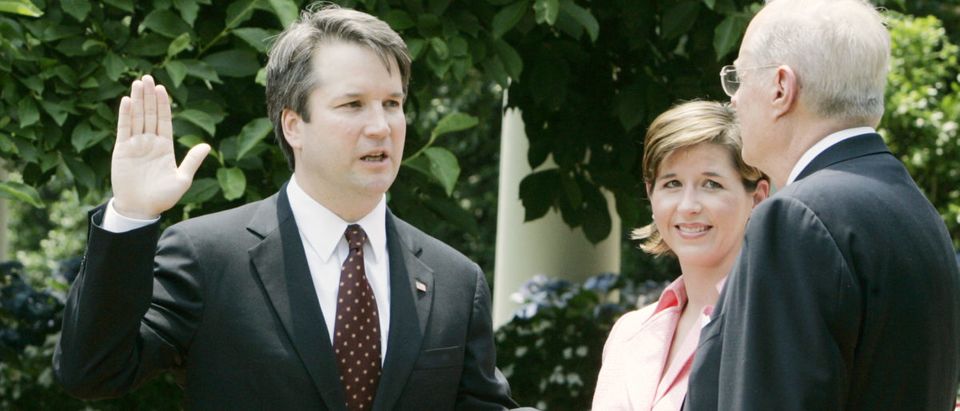Judge Brett Kavanaugh, one of President Donald Trump’s top choices to replace Justice Anthony Kennedy on the U.S. Supreme Court, has played a role in reining in executive branch agencies.
Kavanaugh, one of the most conservative judges on the D.C. Circuit Court, has authored opinions skeptical of Environmental Protection Agency (EPA) regulations many conservatives see as abuses of federal power.
“On these issues, he’s someone who would take seriously the idea that agencies only have the authority Congress granted them,” Jonathan Adler, a professor at Case Western Reserve University School of Law, told The Daily Caller News Foundation.
Judge Amy Coney Barrett of the Seventh Circuit Court of Appeals and Kavanaugh are Trump’s two top picks to replace Kennedy, TheDCNF reported Monday. Kennedy announced his retirement Thursday.
Both of Trump’s top picks are seen as strong conservatives, however, Kavanaugh has more experience in administrative law — an important area given the Trump administration’s deregulatory agenda.
“If one’s primary concern is stuff related to administrative law, then he has more experience than she does,” said Adler, who teaches environmental, administrative and constitutional law classes.
Kavanaugh’s position on the D.C. Circuit Court means he’s authored opinions on many environmental law cases, including high-profile dissents on major environmental law cases. (RELATED: Trial Lawyers Are Behind Rhode Island’s Global Warming Lawsuit Against Big Oil)
Kavanaugh, a former President George W. Bush appointee, dissented in the D.C. Circuit’s 2012 decision not to rehear legal action brought against EPA regulations on greenhouse gas emissions.
During oral arguments over the legality of the Clean Power Plan, Kavanagh said, “Global warming is not a blank check.”
Kavanaugh used a similar line when striking down Obama administration regulations on hydrofluorocarbons, or HFCs, in 2017.
“Climate change is not a blank check for the President,” Kavanaugh wrote in the majority opinion, ruling the EPA did not have the power to regulate greenhouse gases under its authority over ozone-depleting substances.
Kavanaugh also dissented in the D.C. Circuit’s upholding of Obama administration regulations on mercury emissions from coal-fired power plants. Kavanaugh’s dissent was affirmed by the Supreme Court’s 2015 ruling that struck down the Obama-era rule.
“No regulation is ‘appropriate’ if it does significantly more harm than good,” former Justice Antonin Scalia wrote in the majority opinion in 2015.
Some Democrats and environmental activists fretted that Kennedy’s departure from the court could mean the EPA’s authority to issue global warming regulations could be overturned. That authority was affirmed by the Supreme Court in the 2007 case Massachusetts v. EPA.
The Supreme Court’s 5 to 4 decision was only possible because Kennedy sided with liberal justices. Some fear Kavanaugh, of Barrett, would tip the balance against EPA authority.
“Nothing environmentally good is going to come out of replacing Anthony Kennedy with anyone whom Donald Trump believes is qualified to sit on not only the Supreme Court, but any court,” former Sierra Club lawyer David Bookbinder told E&E News.
However, Adler said it’s unlikely the court overturn Massachusetts v. EPA because of its strong tradition of “stare decisis” — latin for “to stand by things decided.”
“It’s one thing to overturn a bad constitutional decision because Congress can’t fix that,” Adler said, though he added a Kennedy-less court could narrow the application of Massachusetts v. EPA.
“It’s not going to be overturned,” he said.
Follow Michael on Facebook and Twitter
All content created by the Daily Caller News Foundation, an independent and nonpartisan newswire service, is available without charge to any legitimate news publisher that can provide a large audience. All republished articles must include our logo, our reporter’s byline and their DCNF affiliation. For any questions about our guidelines or partnering with us, please contact licensing@dailycallernewsfoundation.org.


